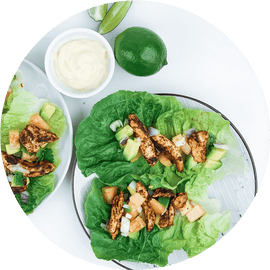Chapter 13.
Keto Diet for Weight Loss
Keto dieting promotes natural weight loss. It is one of the greatest tools to allow your body to heal itself and revert back to a healthy state, but there are some great weight loss principles you can add to the keto diet to advance your weight loss ability. Here are just a few of the tools we use in our diets to maximise your weight loss ability, that you can start to implement today.

Tools we use in our diets to maximise your weight loss ability
Calories
Calories have always been the key to weight loss; however, with keto dieting, they are not the main focus due to your body becoming a fat burning machine. Nevertheless, they still can play an important role in helping you speed up your weight loss results.
There are two ways to manage your calories: either burn more calories than you consume or consume less than you burn. Burning more calories than you consume focuses more on exercising, and consuming fewer calories than you burn often requires restricting the number of calories you eat.

Each macro type (protein, fat, carbs) contains different quantities of calories. As we mentioned earlier, food = energy and macros = food, so the word we use to measure how much energy comes from each macro is called calories.
And as each macro provides different types of energy, they also provide different amounts of energy.
For each gram of carbohydrates, you will get 4 calories. Likewise for each gram of protein, you will get 4 calories; however, for each gram of fat, you will get 9 calories.

Why is this important? Well in order to enhance your weight loss, it’s key to manage the number of calories you are consuming. If you consume more calories than you burn or burn less than you consume, you will hinder your weight loss ability.
So your objective is not only to eat the right type of macros but the right amount of calories also.
You can find multiple calorie calculators online that will work out your recommended calories based on your age, height, gender, activity levels and how much weight you want to lose; however, we have created a graph of recommended calories for males and females, with little activity at work, that want to lose .5kg per week.

So let me walk you through how this plays out.
With Jane below (our virtual client), she wants to lose 15kg. She doesn’t want to exercise yet but wants to walk. She weighs 60kg, is 40 years old and is starting the keto diet.
The recommended calories for Jane are 1386 and she would need to consume 70% of those calories from fat, 25% from protein and 5% from carbs.
So based on the recommended calories and macro percentages, Jane’s daily eating goals are as follows:
Fat – calories 970/ grams 107
Protein – calories 346/ grams 86
Carbs – calories 69/ grams 17

Intermittent Fasting
With not only weight loss benefits but amazing health benefits such as reverse ageing, metabolism control, cellular re-creation, hormonal balancing, and with new health benefits being discovered all the time, intermittent fasting is the greatest tool you can add to a keto diet.
The term intermittent fasting basically means fasting in intervals or broken phases. For example, you would fast for a period of time and then hop off the fast for a period of time and repeat.
There are many ways to practise intermittent fasting, such as repeated daily fasting, which is fasting at a set time of the day, and repeated daily. Then there is repeated weekly fasting, where for a set day of the week you would fast for that whole 24-hour period, then the next day resume your standard eating for the rest of the week until it came back to that day of the week.

The most effective method of intermittent fasting for weight loss on a keto diet is repeated daily fasting, and with that said, the 16/8 hour style is the most practised, where you eat for an 8-hour window and not eat for a 16-hour window.

Stress Management
Stress plays a major role when it comes to weight loss, and I am not talking about weight loss through stress being a positive thing. Stress, if not managed, will close the door for weight loss completely.
Stress is exposing yourself to high amounts of pressure. This could be over-exercising, not eating enough, lack of nutrients, relationship breakdowns, increased workload, lack of sleep, mindset of fear, financial hardship, overexposure to negativity, no vision, absence of joy, too much uncertainty and the list goes on.
All of these can be managed individually, but when a few of them happen to us at once it becomes overbearing to our body, and as a result our body will go into self-preservation mode and to its best ability stop weight loss.
Let’s face it – when we start a diet we do it all at once. I am a victim of this; as soon as I start some sort of new goal, I put all in. I wake up super early to do some light exercise, cut out foods, start training during the day and implement new eating styles, but I don’t adjust the rest of my life, so by day 3-4 all the stress builds up until either an injury pops up or I get run down.
So while aiming to lose weight on a keto diet, look to minimise or eliminate these stress avenues for at least the first 7 days.
Meal Timing & frequency
Eating at specific times and frequencies can help accelerate your weight loss ability through speeding up your metabolism, providing you with consistent energy, controlling the level of carbohydrates your body is exposed to at any point of time and aiding your digestive system.
It’s recommended that you eat small meals every 2-3 hours. You can also adjust your training time to be before you eat, so you train on an empty energy source forcing your body to break down your body fat to produce ketones. This will do two things: 1) burn up the excess glucose you have in your system, maximising ketosis, and 2) maximise the fat you burn, as if your body has no glucose to burn, it will burn ketones and in essence, fat.
You can also fit this style of dieting in with intermittent fasting.
Meal Size
Eating smaller meals means that you are consuming fewer calories at one time. It also means that you are consuming fewer macros at one time, which means you are controlling the amount of carbs/sugar/glucose you are exposing your body to at one time, ensuring you maintain a high level of ketone production.
It also speeds up your metabolism, as it means you need to eat more frequently and your body will digest your meals faster and have a larger gap between digestion periods.
If none of that means anything to you, just know that eating smaller meals more frequently means you are less likely to fall to cravings due to cravings and starvation.
The way you work out your meals is to divide how many calories and macros you are allowed to consume during the day and divide them by 5-6 meals. Alternatively, you can find a weight-loss program that calculates all this for you through their meal plans.
Water
Water has been the source of survival for all of history. It’s the one essential we can’t go without. When it comes to weight loss, the essentialness of water doesn’t change – in fact, it increases.
Hydration is a key stress factor. If you are dehydrated, your body will slam on the brakes for weight loss immediately, because your body knows hydration is a “major” concern when it comes to survival and that dehydration will ultimately lead to death. As dramatic as that sounds, your body doesn’t have a dramatic filter, and only cares about one thing: your survival. So at the first sign of dehydration, your body will trigger this internal survival instinct.
It is recommended to have 3.5-4.5 litres of water a day on a ketosis diet; even more when exercising or exposed to high levels of heat. If you are consuming the higher end of the recommended water intake, it’s also recommended to ensure you increase the salt in your diet to almost double.





